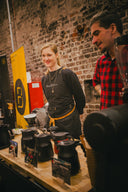Sold out
Colombia Dos Hermanos Honey Bridge
1.329,00 Kč
Regular price
1.329,00 Kč
Flavor profile:
Processing:
Characteristics:
Region:
Owner:
Altitude height:
Variety:
Varieties on the farm:
SCA Score:
Importer:
 Detailed description
Detailed description



